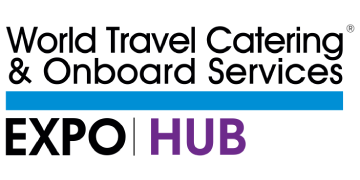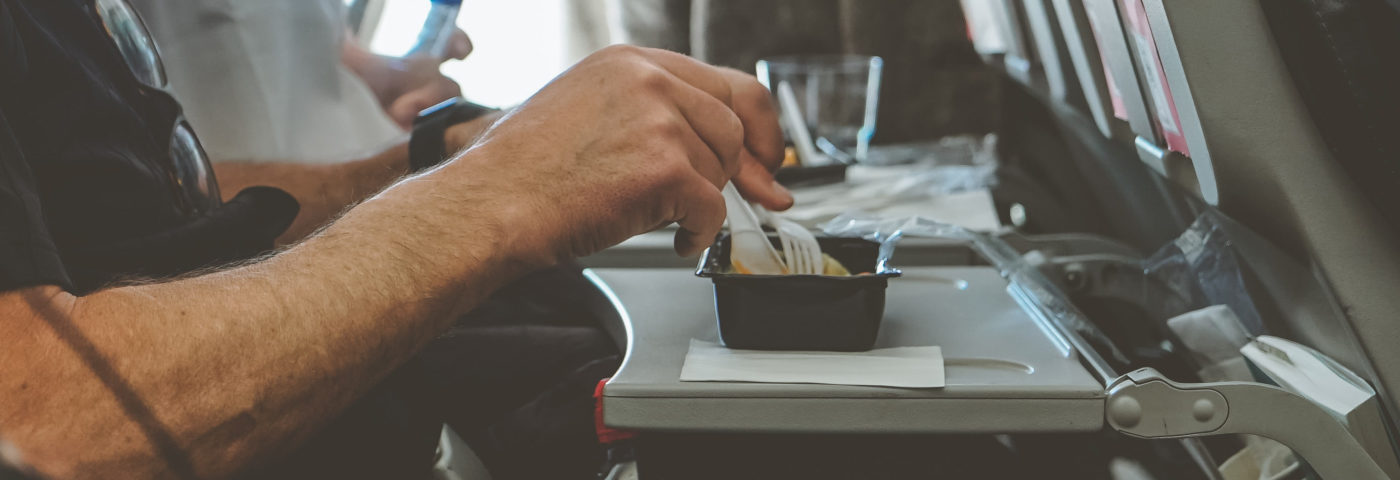Onboard services are set to change dramatically in the rest of 2020 and beyond. COVID-19 will have a marked effect on onboard offerings with passengers demanding safe options but also healthier and fresher choices.
Before WTCE 2020 we asked all industry visitors what they were going to be looking for at the show. From this, we identified a few major trends that buyers were interested in. We believe these trends are set to accelerate even more through the rest of 2020 and airlines will need to react quickly to keep passengers happy.
Here are our findings:
1. A thirst for low-and-no-alcohol drinks
There are 6.1 million adults in Great Britain who don’t drink alcohol. This is an increase of 59% year-on-year according to a report from Diageo. They also found that non-alcoholic choices are increasingly popular with younger adults. 46% of people under the age of 35 are likely to order a mocktail versus just 16% of over-35s.
Of our VIP visitors, 44% responded that they are looking to source non-alcoholic options. With consumers now worried about the health side effects of drinking alcohol, this trend for low-and-no alcoholic drinks is only set to continue.
Find out more about what is happening with drink services in our ‘Five Trends for the Onboard Beverages Market’ article.
2. Train travel set to increase
With international travel set to be restricted for the rest of 2020, consumers may look to travelling by train in their own country. European travellers are already used to moving by train. The Williams Rail Review found that average growth in passenger-kilometres travelled is 53% in the last 22 years. With trains also offering more physical distance between passengers, demand could increase even more.
This could necessitate an increase in plane-style service. The popular Eurostar that travels between major European cities is one example of how service on the rails does not have to be limited to just the usual snack counter. If passenger demand does increase, then rail providers should also look to improve the onboard offerings.
Read more about how train travel is on the right tracks here.
3. Frozen assets
Frozen food offers the ultimate in convenience for caterers, particularly those operating in what can be confined kitchens and galleys onboard planes, trains and boats.
At least 95% of chefs and caterers use frozen food and at least 82% understand that freezing products will lock in freshness, according to BFFF. Chefs and caterers also believe that frozen foods are frozen at the peak of their quality. This quality then translates to a uniform experience for the passenger.
4. New and sustainable accessories
Functionality is vital when it comes to china, cutlery, disposable crockery, galley goods, trolleys and trays. Making sure that equipment offers onboard hospitality staff convenience and is easy to use will mean a seamless service to passengers.
The focus on sustainable products is only set to increase too. Airlines and rail will need to offer products that are clearly made from recycled goods, or can be easily recycled themselves.
An increase in reusable cutlery is also likely. KLM had been trialing plastic cutlery and containers that are easily washed and reused on the next flight. This will have to be put on hold until the current pandemic subsides as customers put hygienic concerns ahead of sustainability concerns. In the future though, this could be a method for airlines to save costs, and with dramatic savings needed, this could be one way to go.
5. Reducing human-to-human contact
In the short-term, new solutions will be needed to reduce touchpoints between staff and passengers. Delta has introduced new snack bags containing water, snacks and sanitising wipes. The bag then doubles as a way for customers to dispose of the waste. This may increase plastic use but offers a quick option for the airline until new solutions are found.
Major suppliers have begun to create low-touch packaging to also help deliver food safely. One example comes from En Route International who unveiled a whole range of boxes that should suit all services.

In the medium to long-term, airlines will need to find new ways to deliver meals throughout flights. Long haul travel will probably be delayed for longer so a focus on short-haul solutions is needed.
Many low-cost carriers already offer order-before-you-board menus. This can reduce not just touchpoints but also the need to load the aircraft with excess food. We expect larger carriers to follow suit and look for new tech in its solutions.
Looking to the future
As the industry begins to recover, making sure customers feel safe while still enjoying their experience onboard will be the number one priority. The above options will help airlines and rail providers stand out from the crowd and win back passengers once demand returns.
Header Photo by Free To Use Sounds on Unsplash.

